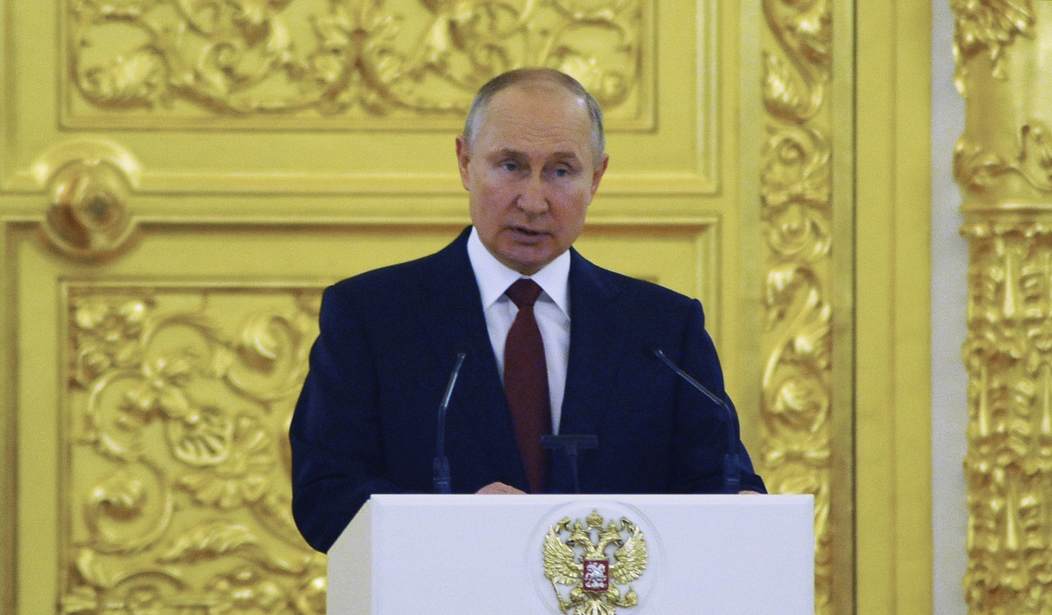Most foreign policy analysts are keeping an eye on the extensive meetings that began in Europe this week between diplomats from Russia, the United States, and NATO. But there’s another diplomatic summit taking place in Normandy at the same time. France is hosting a meeting between officials from Russia, Ukraine, and Germany to discuss the ongoing unrest and fighting in eastern Ukraine. Unlike the NATO talks, where prospects for any sort of diplomatic breakthrough appear slim, the talks in Normany may have produced some meaningful progress in the first couple of days. Ukrainian President Volodymyr Zelensky announced last night that his government was “ready to make decisions” aimed at “ending the war” in the eastern part of his country and potentially calming down Vladimir Putin to the point where he might start withdrawing some troops from the border. But while that announcement sounds potentially promising, Zelensky was very short on details in terms of what sort of concessions he was willing to make. (Reuters)
Ukraine is ready to take the necessary decisions to end the war in its eastern Donbass region at a new summit of the leaders of Ukraine, Russia, France and Germany, Ukrainian President Volodymyr Zelenskiy said on Tuesday.
“It is time to agree on an end to the conflict, and we are ready for the necessary decisions during a new summit of the leaders of the four countries,” Zelenskiy said in a statement.
In the same statement, Zelenskiy’s chief of staff Andriy Yermak said Kyiv wanted to agree on measures such as implementing a ceasefire and more prisoner swaps.
To be clear, this meeting is not focused on the Russian troop buildup on the Ukrainian border and a potential war that might ensue if Putin invades. They’re talking about the actual war that’s already taking place between Ukrainian government forces and pro-Russian separatists in eastern Ukraine. While it might not be an officially declared war, the fighting has been dragging on since 2014 when Russia seized the Crimean Peninsula and up to 15,000 people have been killed.
Discussions of prisoner swaps and a new ceasefire are better than nothing and it’s encouraging to at least see the two sides talking. But there hasn’t been any sort of concrete offer put on the table beyond that. The French official at the meeting said that he was “hopeful” for progress because Kyiv had indicated that Zelensky was ready to make “some political gestures” if it would help to break the stalemate. The Russian official expressed “guarded” optimism, but noted that significant differences remained.
Zelensky’s position remains tenuous because he really only effectively controls half of his country right now. The pro-Russian separatists arguably hold much of the eastern half of the nation. I’m not sure what sort of “gestures” he could make that would resolve the tensions. He can’t just grant autonomy to half of his country, right? Nor could he simply invite Putin to absorb the region without bothering with a military invasion.
There might be a path forward, however, and it’s one that I’ve suggested here before. If Zelensky were to offer a promise to not apply to join NATO and not welcome any additional NATO troops or weapons into his nation, that would give Moscow the concession that they’ve been demanding from the beginning. Putin has already said he’s ready to make a deal if he receives those types of assurances. And if he tells the pro-Russian forces in eastern Ukraine to stand down, most of them probably will if they know that the Russian military doesn’t have their backs.
If that’s what winds up happening, the four-way talks in Normandy could effectively remove the need for much of the NATO talks that are currently underway. Granted, they will still need to discuss the situation with Finland and Denmark, and there is still trouble brewing in Kazakhstan, but Ukraine is the primary flashpoint everyone is worried about. But if no such agreement comes out of Normandy, we’ll probably be right back where we started.








Join the conversation as a VIP Member